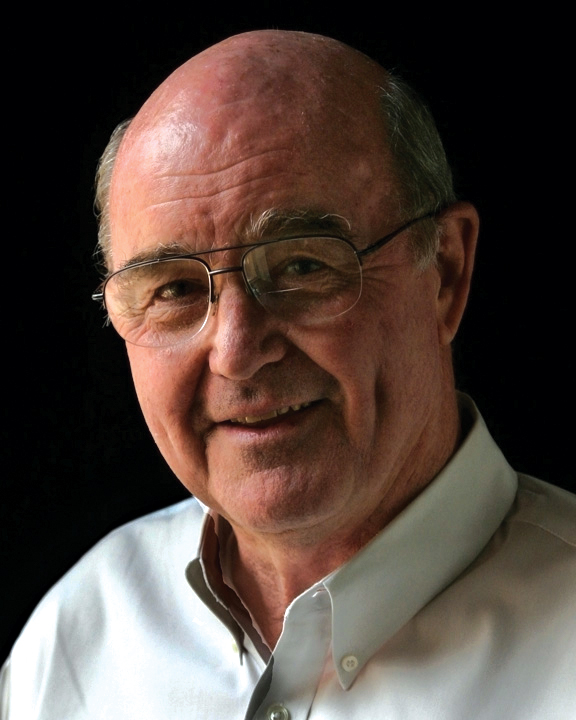National Medal for Technology and Innovation recipient to speak on campus

C. Grant Willson, professor of chemical engineering and chemistry at the University of Texas at Austin, who was awarded the 2007 National Medal for Technology and Innovation by the President of the United States, will visit Virginia Tech on April 2 and April 3.
Willson will be the keynote speaker at the Graduate Student Assembly's 25th Annual Graduate Research Symposium at 7:30 p.m. Thursday, April 2 in the Graduate Life Center auditorium. The talk, on "Nanotechnology for me and for you!" is open to the public. The research symposium, on Wednesday, March 25, from 8 a.m. to 4 p.m. in the Graduate Life Center, will highlight more than 170 graduate student participants and their research. Winners will be recognized at a banquet on April 2.
Willson will also be featured at the Macromolecules and Interfaces Institute's Chevron-Phillips lecture series on Friday, April 3, at 9 a.m. in Virginia Bioinformatics Institute auditorium. The Macromolecules and Interfaces Institue talk will be "MUFFINS: Shape Indexed Hydrogel Microsensors," which will discuss the pioneering work of applying micro electronic processing techniques to the preparation of novel medical sensors. The abstract and information on this lecture can be found online. The lecture is open to the public.
Willson received the national medal for the creation of novel polymeric lithographic imaging materials and techniques that have enabled the manufacturing of smaller, faster, and more efficient microelectronic components that have improved the competitiveness of U.S. microelectronics industry. The award is given to individuals, teams, and/or companies/divisions for their outstanding contributions to the nation's economic, environmental, and social well-being through the development and commercialization of technology products, processes and concepts; technological innovation; and development of the nation's technological manpower.
He worked for IBM Research for 17 years before joining the faculty at the University of Texas, Austin, in 1993. Now the Rashid Engineering Regents Chair, Willson's focus is opportunities for students. His research projects are chosen to provide students with an interesting, challenging, and important interdisciplinary problem that will produce new and useful knowledge. The projects are also designed to provide a framework in which graduate students learn to design and carry out experiments and to report the results of their work in written and oral form.
At IBM, Willson managed a large group of researchers who were working on development of new polymers for microelectonics. In addition to being an IBM Fellow, he is a member of the National Academy of Engineering.
His research interests include polymer chemistry, materials for microelectronics, photoresist materials, and microelectronics processing.
His work in photoresist research has been honored by the Arthur Doolittle Award, the Chemistry of Materials Award, the Carothers Award from the American Chemical Society (ACS), the Alexander von Humboldt Senior Scientist Award from the Federal Republic of Germany, the ACS Award for Cooperative Research in Polymer Science and Engineering, the Semiconductor Research Corporation (SRC) Technical Excellence Award, the SRC Aristotle Award, and the Malcolm E. Pruitt Award from the Council for Chemical Research.
He is the recipient of the 1999 National Academy of Sciences Award for Chemistry in Service to Society. He was appointed Fellow of the PMSE Division of ACS in 2001 and received the Applied Polymer Science Award from the ACS that year. In 2003, he received the Photopolymer Science and Technology Award in Japan and in 2005 he received the Dehon Little Award from the AIChE, the Zernike Award from SPIE, the International Society for Optical Engineering, and the Heroes in Chemistry Award from the ACS. He was the 2007 recipient of the Semiconductor Equipment and Materials International (SEMI) North America Award.
The Macromolecules and Interfaces Institute at Virginia Tech is one of the leading polymer oriented programs in the United States with more than 50 faculty members and 120 graduate students devoted to emerging technologies that are enabled with novel polymeric materials.
Find more information on the
- Graduate Student Assembly research symposium
- Macromolecules and Interfaces Institute seminar visit the website or contact S. Richard Turner, director of the Macromolecules and Interfaces Institute, at (540) 231-4552.



.jpg.transform/m-medium/image.jpg)
